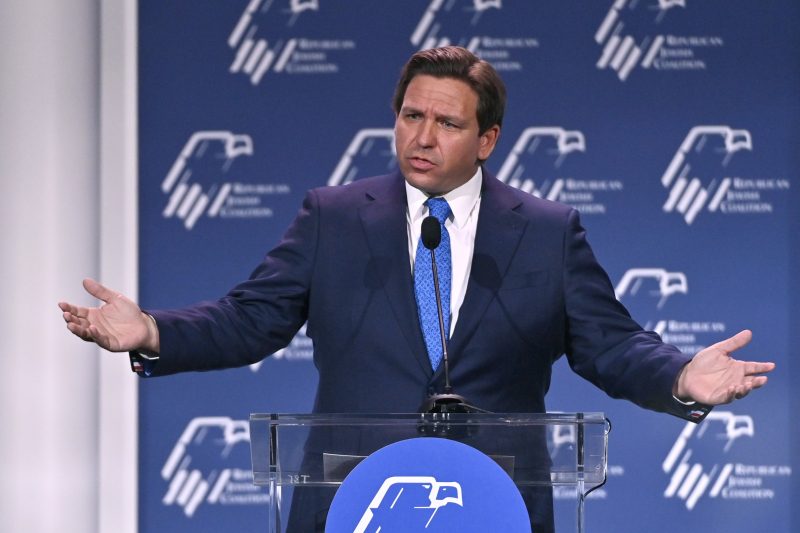For a time this week, some GOP-leaning Donald Trump critics wagered that Trump’s post-indictment bounce might be fading. A poll showed Florida Gov. Ron DeSantis (R) suddenly chipping away again at the lead Trump had rebuilt after the Manhattan district attorney indicted him in late March.
Then came the reality check — via what arguably had been DeSantis’s best poll in his most promising primary state.
A University of New Hampshire Survey Center poll released Wednesday showed a major shift in the state. DeSantis’s 12-point lead in January (42 percent to 30 percent) became a 20-point deficit in the new poll (22-42). That 32-point shift on the margins is bigger than that in most any other polls, which have generally shown the margins moving in Trump’s favor by between eight and 15 points after his indictment.
UNH’s survey data often fluctuate significantly. But it’s not the only evidence that what could be a good primary state for DeSantis — New Hampshire Gov. Chris Sununu (R) last month wagered that there was “no doubt in my mind” DeSantis was winning the state — is no longer looking quite so rosy.
When the January poll came out, I noted that DeSantis’s lead in a crowded field there was largely unheard of: “We haven’t seen that in virtually any other such poll, national or otherwise.” UNH’s mid-2022 poll was also among the first to suggest that DeSantis could contend with Trump. And post-2022 election polls from a pair of GOP super PACS, including the Trump-critical Club for Growth, had shown DeSantis leading in the state even as he trailed pretty much everywhere else.
It seemed reasonable to wonder whether a state with a very popular and Trump-critical GOP governor and with a history of upending the expected course of primary campaigns might assert itself. That governor sure seemed to think so.
Since then, the UNH poll, a St. Anselm College poll and other polling show Trump leading by double digits.
The good news for DeSantis is that even this poll suggests that a path to victory remains.
While he trails Trump by 20 points, he’s the overwhelming leader on second-choice votes. Thirty percent list DeSantis as their second choice, while just 14 percent say the same of Trump. So both men are the first or second choice of a small majority of voters. And DeSantis is the second choice of a majority of Trump voters — 56 percent.
That suggests that DeSantis remains well-poised if Trump falters, if the race is distilled down to the two of them, or if the GOP readjusts its priorities in favor of electability. (Washington Post columnist Henry Olsen spotlighted this while highlighting another New Hampshire poll this week.)
DeSantis also, despite his deficit, remains more popular than Trump. While the gap has closed since January, DeSantis’s image split (63 percent favorable to 15 percent unfavorable) remains better than Trump’s (59-28) — even in a poll in which he trails.
All of which points to Trump’s ceiling in New Hampshire. The January poll showed that only about half of Republicans had a favorable opinion of Trump, and even the new poll shows that just 51 percent want him to run. (By comparison, 66 percent want DeSantis to run.)
There’s been plenty of talk of late about whether DeSantis should follow through and actually run. On the one hand, he has clearly faded, and running against Trump is no picnic. On the other, there’s no guarantee DeSantis’s chances would be better in 2028 — his stock has been high thanks to a huge reelection win in November and the lack of other credible Trump challengers — and pulling out now in the face of Trump’s repeated attacks would be a major embarrassment. It’s also quite possible that Trump’s post-indictment bump won’t last.
What’s clear is that DeSantis’s decision is tougher than it once was.

